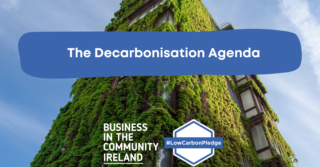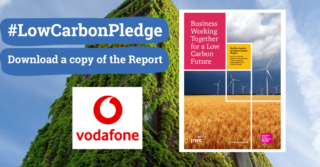Tesco Ireland and ESB partnership
Reducing Tesco Ireland’ s carbon emissions and minimising the footprint the company creates as a business is a core strategic objective for the wider Tesco Group.
Equally, creating a sustainable, energy efficient business is a key ambition for Tesco Ireland. The company has a major focus on reducing energy demand, energy intensity and carbon emissions. They are transforming themeselves to become a zero carbon business and driving a real behaviour change along the way. Tesco Ireland’s environmental strategy sets out a number of targets and measures to increase recycling and help them reduce their CO2 emissions.
Tesco Ireland is aiming to:
- halve carbon emissions from the 2006 baseline portfolio of buildings by 2020
- have new stores built between 2007 and 2020 emit half the CO2 of a store built in 2006
- reduce the amount of waste sent to landfill to zero
A partnership agreement with ESB Smart Energy Services (ESB SES) provided the perfect vehicle in which to deliver this energy reduction plan.
Initiative
Tesco Ireland is collaborating with ESB Smart Energy Services on an energy reduction and management programme to drive down energy consumption across our operations with ultimate aim of achieving a greener business that has a positive effect on the environment.
In its third year, this is being achieved via a Managed Energy Services partnership that is reaping true and far ranging environmental benefits.
Tesco Ireland are achieving significant reductions in energy consumption across their portfolio of buildings, while maintaining and improving the look and feel of their stores showing that that you can operate a truly sustainable business in a way that is good for business and good for the environment.
In the last year, they did this by:
- Retrofitting smart technology:
- Carried out LED retrofitting of back-of-house and distribution centres as well as 77 retail stores.
- Achieved a reduction of water usage through fixing water leaks.
- Improved air handling by installing modulating burners, removing defunct cooling coils and excessive filtering systems.
- Upgraded refrigeration plant
- Commissioned a wind turbine at the Tesco Distribution Centre in Donabate.
- Installed a woodchip boiler in the Tralee Manor store. This is the fourth woodchip boiler in the Tesco estate.
- Reduced the number of oil heated stores from 14 to 3.
- Gaining enhanced control and leveraging data:
- Achieved enhanced control of HVAC systems to reduce energy demand
- Improved lighting controls including automatic switching, daylight harvesting and dimming
- Carried out data analytics of refrigeration energy usage
- Implemented active energy monitoring programme to identify wastage
- Implemented remote proactive monitoring of refrigeration, lighting and heating, dealing swiftly with any anomalies
- Introduced water usage analysis and investigation of anomalies
- Buying sustainably:
In the past year Tesco Ireland has procured 100% renewable electricity.
Tesco uses sustainable building materials whenever possible, including timber frames and natural stone. They also work with suppliers to share lessons learned from their project to help them reduce their carbon emissions.
The energy efficiency of equipment is considered at design and procurement stages.
Impact
Tesco Ireland are very proud of their key achievements to date and the positive environmental impact. They have driven an energy reduction of 12,000 tonnes of CO2 annually, decreased energy operational spent by 23% and reduced their carbon footprint by over 50%.






